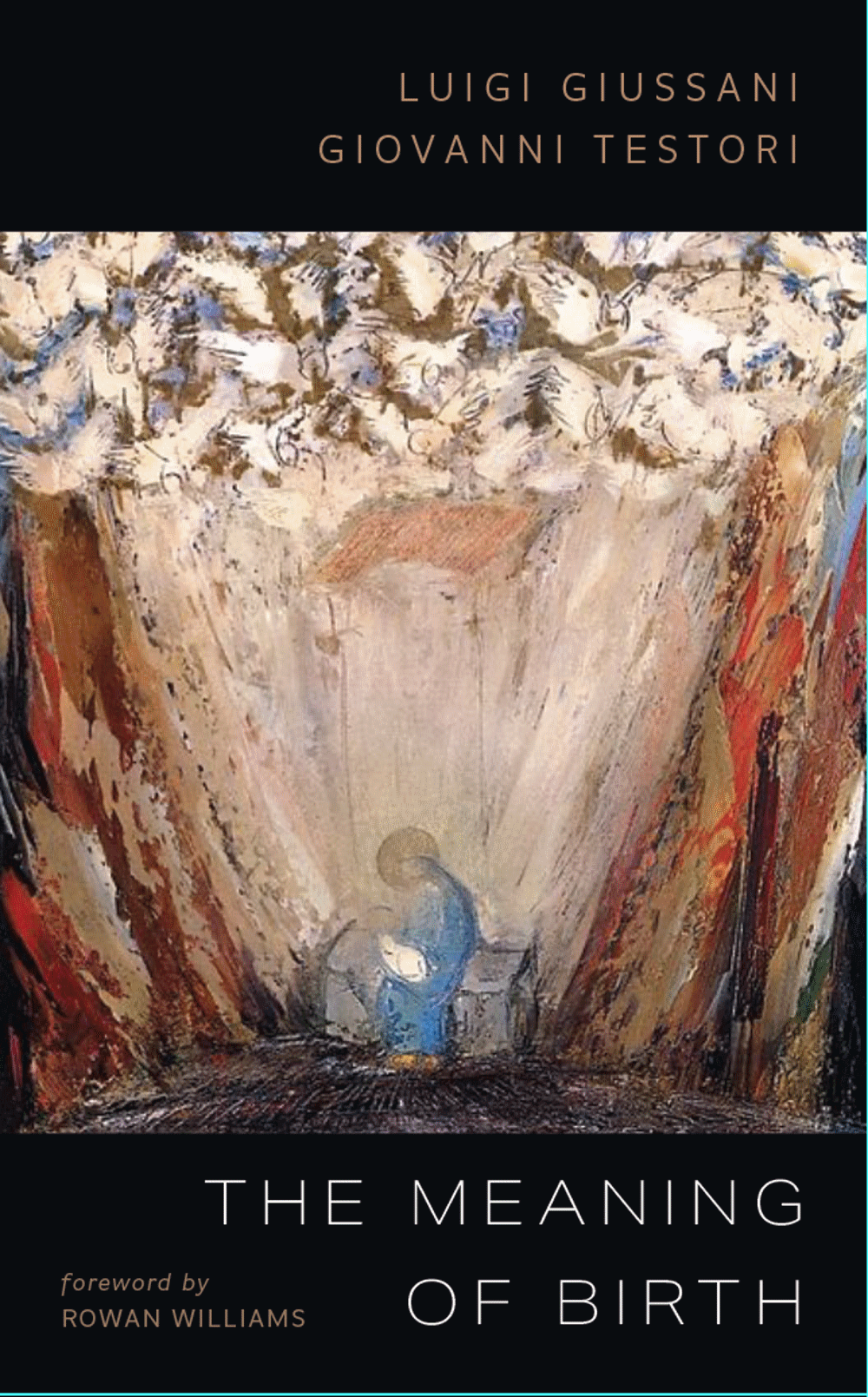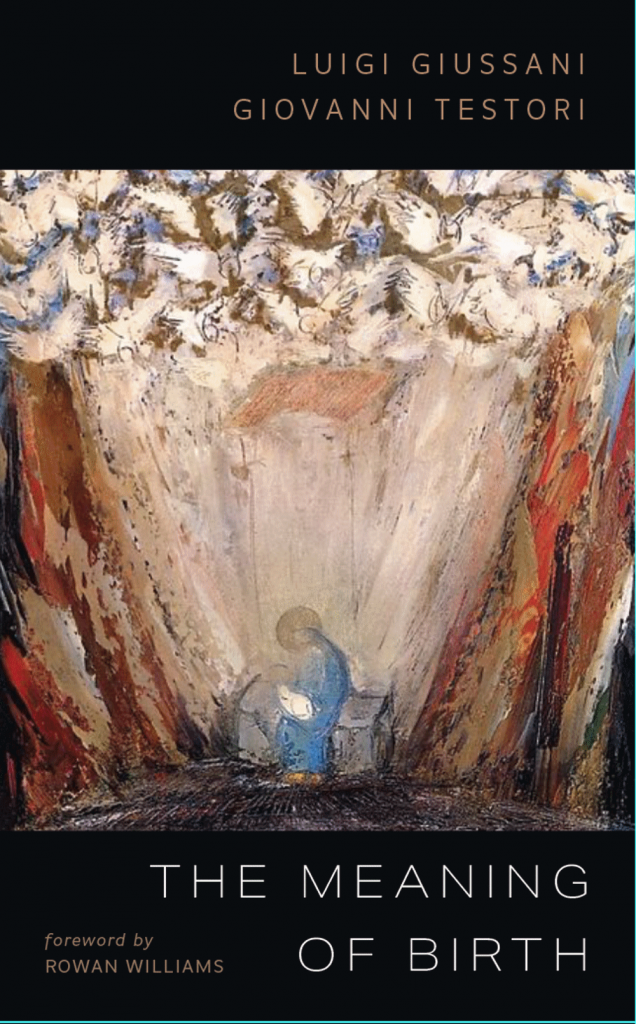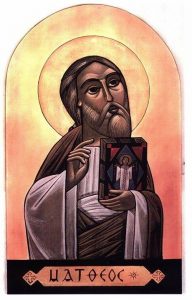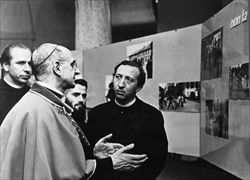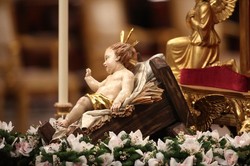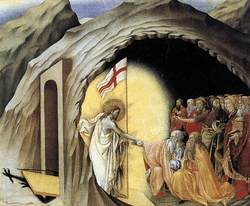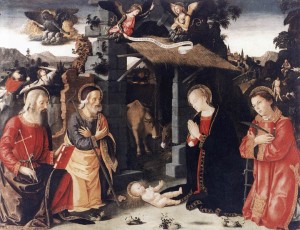
The Lord your God is in your midst, a mighty Savior; He will rejoice over you with gladness, and renew you in his love. He will sing joyfully because of you, as one sings at festivals. (Zeph. 3: 14-18a)
I find myself at this time of year, with this feast, what does it mean that God has entered into my very circumstance. At leach of the Masses I genuflected at the part where the Incarnation was professed and wondered how at this moment there is a keen recognition of what the difference Jesus makes in world, among friends and enemies, indeed, all of life. A friend of mine said that Christmas reminds the baptized Christian that the Incarnation provides us the opportunity to know that God looks like us (but doesn’t act like us); God know the very circumstance of living. I spent so much time at the Christmas Masses wondering quietly —and aloud— about the fact of God’s gaze upon us through the Birth of His Son, Jesus. Asking myself, how is that God loves me so much that he peers into my existence in 2014? But, it is also how I peer into what God has so wonderfully done…
I think it is a true statement to say that Christmas is, more than any Christian celebration, a way to know that God is really in our midst. (Pascha has its own theological experience and data!) As my friend also said, “God’s involvement in our lives as the Word made Flesh, as Christ the Lord, as a real human being means that there is nothing in our lives that God cannot understand from personal experience.”
This sermon of the great Saint Augustine of Hippo helps me to consider anew what I profess to believe and to sharpen witness. Perhaps your meditation today and during the Octave will benefit from this sermon:
My mouth shall speak the praise of the Lord…by whom all things were made and who was made [flesh] amid all the works of His hands; who is the Manifestor of His Father, the Creator of His Mother; Son of God born of the Father without a mother, Son of Man born of a mother without a father; the great Day of the angels, small in the day of men; the Word as God existing before all time, the Word as flesh existing only for an allotted time; the Creator of the sun created under the light of the sun; ordering all ages from the bosom of His Father, from the womb of His Mother consecrating this day; remaining there, yet proceeding hither; Maker of heaven and earth brought forth on this earth overshadowed by the heavens; unspeakably wise, wisely speechless; filling the whole world, lying in a manger; guiding the stars, a nursling at the breast; though insignificant in the form of man, so great in the form of God that His greatness was not lessened by His insignificance nor was His smallness crushed by His might. When He assumed human form He did not abandon His divine operations… When clothed in the weakness of our flesh He was received, not imprisoned, in the Virgin’s womb so that without the Food of Wisdom being withdrawn from the angels we might taste how sweet is the Lord.
Why do we marvel at these conflicting powers of the Word of God when the discourse which I utter is apprehended so freely by the senses that the hearer receives it, yet does not confine it? If it were not received, it would give no instruction; if it were confined, it would not reach others. In spite of the fact that this discourse is divided into words and syllables…you all hear the whole discourse and each individual takes in the whole. While speaking, I do not fear that one listener may, by hearing me, grasp the whole discourse so that his neighbor can get nothing of it…Nor is this hearing accomplished at successive periods of time so that, after the dis- course which is being delivered has come to you first, it leaves you so that it may go to another person. No, it comes to all at the same time and the whole discourse is apprehended by each individual…How much more readily, then, would the Word of God, through whom all things were made and who, remaining in Himself, renews all things, who is neither confined by places nor restrained by time, neither changed by long or short intervals of time, neither adorned by speech nor terminated by silence, be able to make fertile the womb of His Mother when He assumed human flesh, yet not leave the bosom of His Father; to make His way hither for human eyes to gaze upon Him, and still to enlighten angelic minds; to come down to this earth while rul- ing the heavens; to become Man here while creating men there?
Let no one believe, then, that the Son of God was changed into the Son of Man; rather, let us believe that, with the perfect preservation of His divine nature and the perfect assumption of human nature, He, remaining the Son of God, became also the Son of Man. For the fact that the Scriptures say ‘The Word was God’ and ‘The Word was made flesh’ (Jn 1.1,14) does not mean that the Word became flesh in such a way as to cease to be God since, because the Word was made flesh, in that same flesh Emmanuel ‘God with us’ was born. …the word which we form within us becomes an utterance when we bring it forth from our mouth: the word is not changed into the utterance, but the voice by which it comes forth is taken on while the inner word remains un-changed; what is thought remains within, what is heard sounds forth. Nevertheless, the same thing is expressed in sound which had previously been expressed in silence…when the word becomes an utterance, it is not changed into this utterance, but remains in the light of the mind; having taken on the voice of the flesh, it reaches the listener without leaving the thinker…Both that which is considered in the mind, however, and that which sounds forth in speech are variable and diverse; the thought will not remain when you have forgotten it, nor will the utterance remain when you are silent. But the Word of the Lord remains forever and remains unchanged.
From Sermon 187: The Feast of the Nativity
